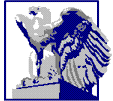| The primary responsibility of the Board members is the formulation of monetary
policy. The seven Board members constitute a majority of the 12-member
Federal Open Market Committee (FOMC),
the group that makes the key decisions affecting the cost and availability of
money and credit in the economy. |

Don
-
Donít give your
account number and bank routing information to anyone you donít know.
Give out your account information
for transactions only if you are familiar with the company you are dealing with.
And if you have not done business with a company before, give out account
information only if you have initiated the transaction. Criminals may ask you
for your bank account number and then withdraw money from your account by
creating a demand draft (sometimes called a "remotely created check") or making
an electronic transfer. They may also ask for your debit or credit card number
and other personal information. Donít fall for these scams and donít let
yourself be pressured into "free trial offers." To be removed from telemarketing
lists, sign up for the National Do Not Call Registry online (https://www.donotcall.gov)
or by calling, toll-free, 1-888-382-1222.

- Review your
monthly statement.
Make sure all the checks, debits,
automatic payments, and other withdrawals are ones you authorized. If you see a
transaction you did not authorize, notify your bank immediately. If your bank
has online banking, you donít have to wait until your bank statement comes--you
can check your transactions at any time.
- Notify your bank
about any problems as soon as possible.
The sooner you alert your bank to
a problem, the sooner they can get it resolved. In some cases, your bank may
require you to notify them in writing. Keep copies of any documents you give the
bank until the problem is resolved. If you think the problem is a result of
fraud, you should also contact your state attorney general.
- If you donít
have enough money in your account, donít write the check or authorize the
debit.
Checks are being processed more
quickly these days, which means the money may be debited from your account
sooner. Also, many stores and utility, insurance, and credit card companies will
convert your check to an electronic payment, which also means the money will be
debited from your account sooner. If you donít have enough money in your account
when you write a check or authorize a debit, you could find yourself paying a
fee. For more information, see the Federal Reserve Boardís publications "What
You Should Know about Your Checks" and "Protecting
Yourself from Overdraft and Bounced-Check Fees."
- Know your rights
under consumer protection laws.
If you have a problem with an
electronic debit or electronic fund transfer, you have certain rights under the
federal Electronic Fund Transfer Act (EFTA), as explained in the Boardís "Consumer
Handbook to Credit Protection Laws." You also have rights under the EFTA if
you have a problem with a check that has been converted, as described in the
Board brochure "When
Is Your Check Not a Check?" The Federal Trade Commissionís publication "Automatic
Debit Scams (175 KB PDF)" explains your rights and what to do if you have a
problem with a demand draft or remotely created check.
--End--
|
